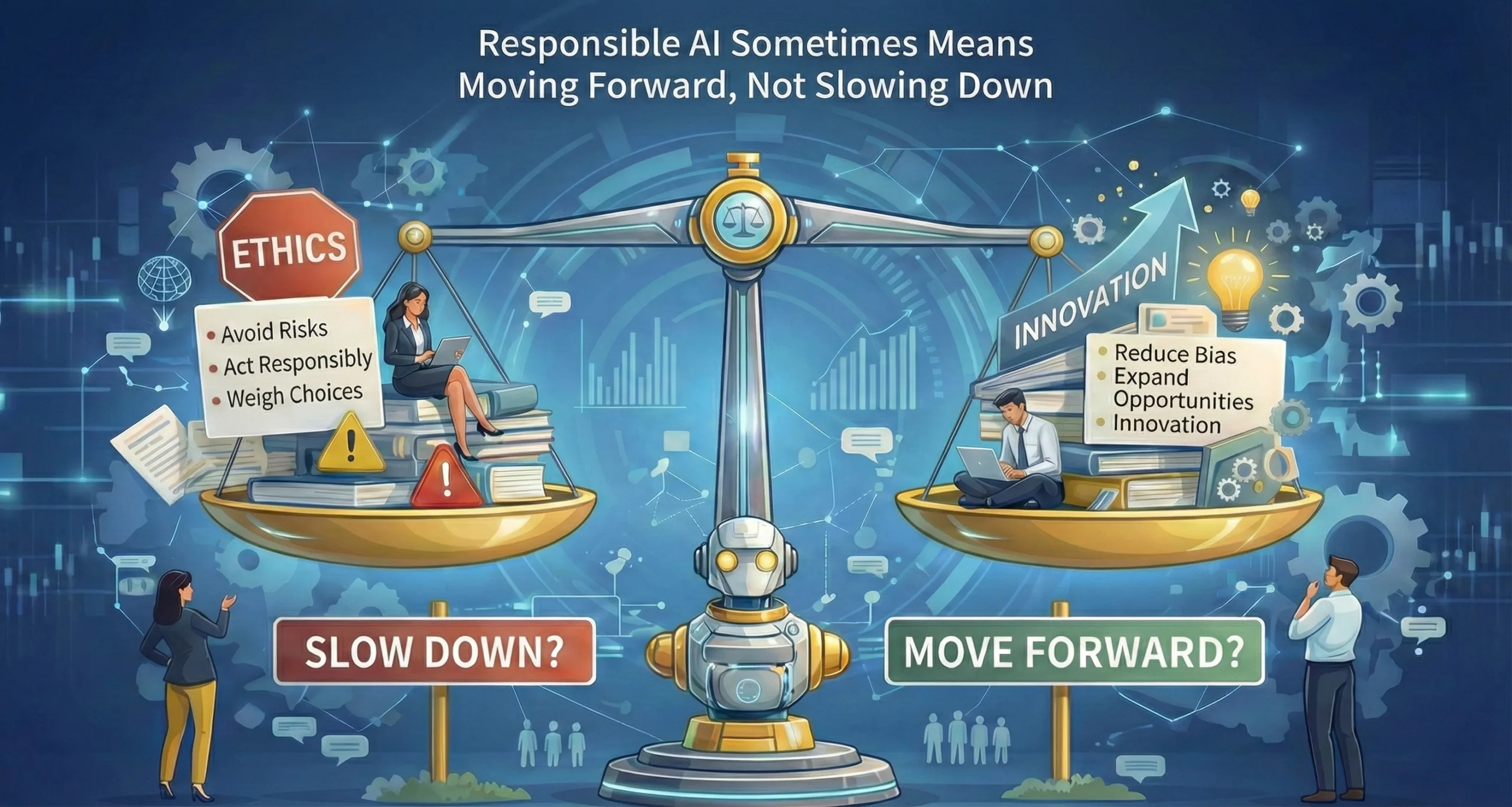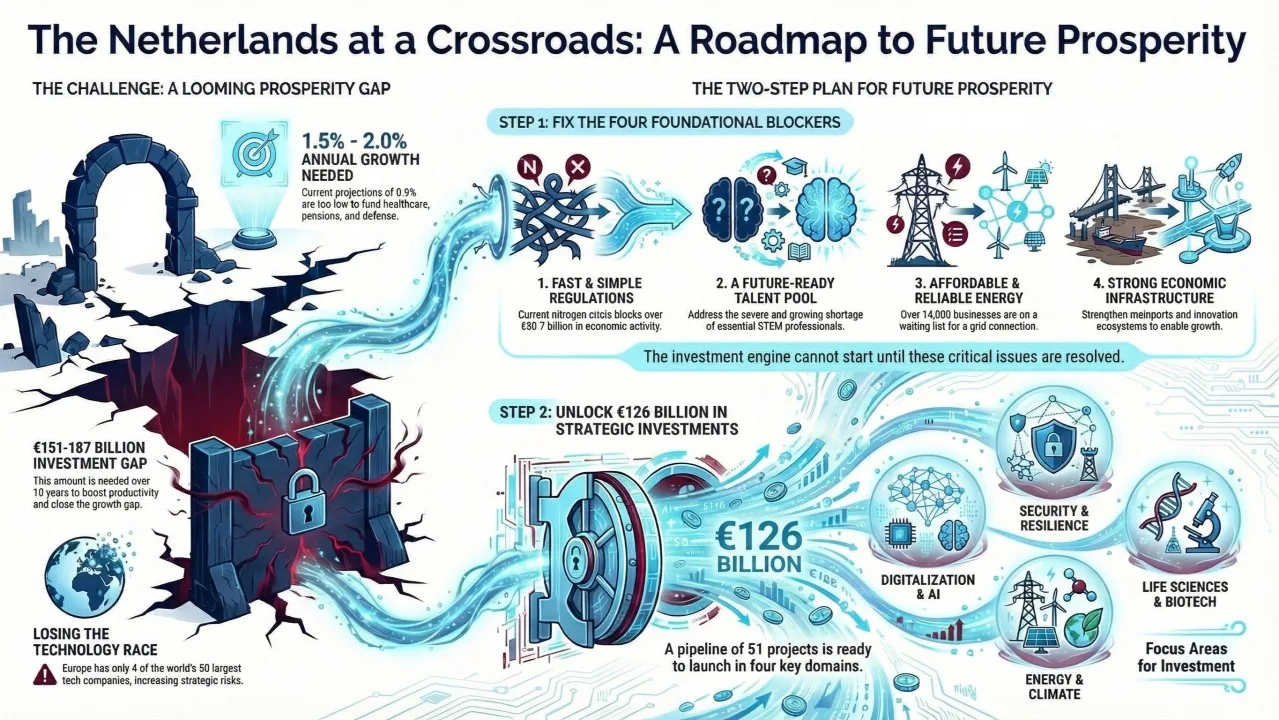With proper training, you can deploy people from unexpected sectors of the job market into scarce job openings. Or you might discover an unexpected job that you didn’t realize you could do with your skills. But how can you gain these insights? Artificial intelligence (AI), when applied to public profiles, can offer a solution.
Many companies are at their wits’ end because they can’t find staff—the talent pool seems empty. However, there are millions of (latent) job seekers who desire work that is more enjoyable, meaningful, and educational. They often do not see all the possibilities with their CVs. Those who look beyond work experience and education can discover numerous skills that are broadly applicable. Rutger Bregman refers to this as a ‘waste of talent.’ With appropriate training, people from unexpected corners of the job market can be deployed to fill these scarce vacancies.
Public profiles can be used to train algorithms to help combat talent waste.
But how do you make these matches, which go beyond what the most experienced recruiters and career coaches can see? By 2024, artificial intelligence has become indispensable! We’re not talking about generic AI (like ChatGPT) but about specific AI, trained on millions of profiles to predict possible matches. Companies like 8vance are developing AI-driven matching technology and collecting publicly shared profiles. Increasingly, individuals are setting their profiles to ‘public’ on platforms like LinkedIn, wanting to be visible to potential seekers. This information can be used anonymously to train algorithms. AI can then provide suggestions for objective and unbiased matches that prevent talent waste.
Complying with GDPR
Naturally, it’s crucial to handle personal data carefully. GDPR compliance is, therefore, a top priority at 8vance. We continuously work to meet these standards. Hence, we have removed all identifying data from our training sets. We do not store personal data or potentially discriminatory information (such as age and gender). We also avoid retaining company names to prevent someone from being identifiable by looking up the company through their role. We keep only the data necessary to train our AI-based matching technology as effectively as possible.
‘We anonymize our AI training data, so it no longer contains personal data.’
Currently, we have extracted combinations of education, work experience, roles, and associated skills from 85 million primarily Western European profiles. We use this knowledge to enhance a candidate’s, employee’s, or job seeker’s profile with data points (including soft and hard skills) that are likely also present but might not have been considered or detailed by the individual. With a much more complete profile, the person receives perfect and surprising suggestions: ‘People like you could also do this work based on these skills.’
Search Engine for Public Profiles
We do the same with job vacancies. After analyzing millions of job ads, we enrich them with the soft and hard skills that are likely required but not explicitly mentioned. This enables us to calculate ‘deep matches,’ with more data points than a recruiter could ever manage. We then present the best matches, based on which skills they were made, including the skills still lacking for a 100% match (the so-called skills gap).
‘We have developed a targeted search engine on millions of publicly shared profiles in the Netherlands.’
To introduce professionals to our powerful matching technology, we offer not only matching on our own data but also a second interesting feature: searching public profiles. Similar to well-known search engines, but focused on public business profiles. Recruiters, labor brokers, and hiring managers can create an account, post their vacancy or project, and immediately see the most skill-matched profiles, including public business profiles, if desired. For this, we have developed a targeted search engine, with millions of currently publicly shared profiles in the Netherlands. What’s unique is that we match based on the likely present and needed skills.
N.B. Currently, LinkedIn is unfortunately hiding more and more data about roles and education from public LinkedIn profiles. As a result, we are increasingly unable to offer profiles from this source in our search engine.
Only Essential Information
Unlike well-known search engines, we do not store all the information we can find on a profile but limit ourselves to the essential information needed to make a work match (education, work experience, and skills). We also do not store contact details, even if they are publicly accessible on the profile. You can only make contact through the platform where the profile was originally shared publicly. If recruiters are interested in a profile, we refer them to the source.
At least every 6 months, we refresh our matching data, so profile data no longer publicly shared online or that has been deleted also disappears from our database. This index of public profiles serves two purposes. On the one hand, we ensure that people are approached based on their skills with relevant job vacancies and assignments through their existing profiles—a blessing compared to the amount of spam that recruiters often spread over profiles. On the other hand, we showcase the power of our AI compared to traditional matching methods.
Processing Personal Data
Organizations looking to use this matching technology to assess their existing talent pool can turn to 8vance. After explicitly obtaining permission from their candidates or employees, we index their data, enrich it with skills, and return the matching scores. This can be done using our Talent Mobility Platform, which features built-in standard workflows for recruiters, or by integrating our technology through APIs into an existing platform.
We enter into a data processing agreement with our clients. We do not use this data to train our AI or offer it in our search engine. If you, as an individual, want to experience which skills and career opportunities AI calculates for you, you can create a personal account at 8vance. In the user agreement, we agree to keep your data secure. We use part of this data to train our AI, but only with your explicit consent. Additionally, you decide whether or not you want to be found in our search engine on our platform, or beyond.
Towards Optimization of the Labor Market
We believe that the careful processing of labor market data gives us an advantage over competition in other countries, where the regulations and case law regarding the processing of personal data are not as clear or as strictly adhered to as in the Netherlands. We therefore strive in all cases to process no personal data, or as carefully and minimally as possible, without compromising the quality of our service.
‘The more insight we gain into the skills gap, the more opportunities we can unlock for you and your organization.’
Indeed, the more insight we gain into the skills gap, the better and more objective the matches, and the more opportunities and potential on the labor market we can unlock for you and your organization.
Want to know more about this? Join my session at the Global Talent Intelligence Conference in September (Amsterdam).
This article was published in Dutch on Werf&: Zo laat je de data van miljoenen openbare profielen in jouw voordeel werken



